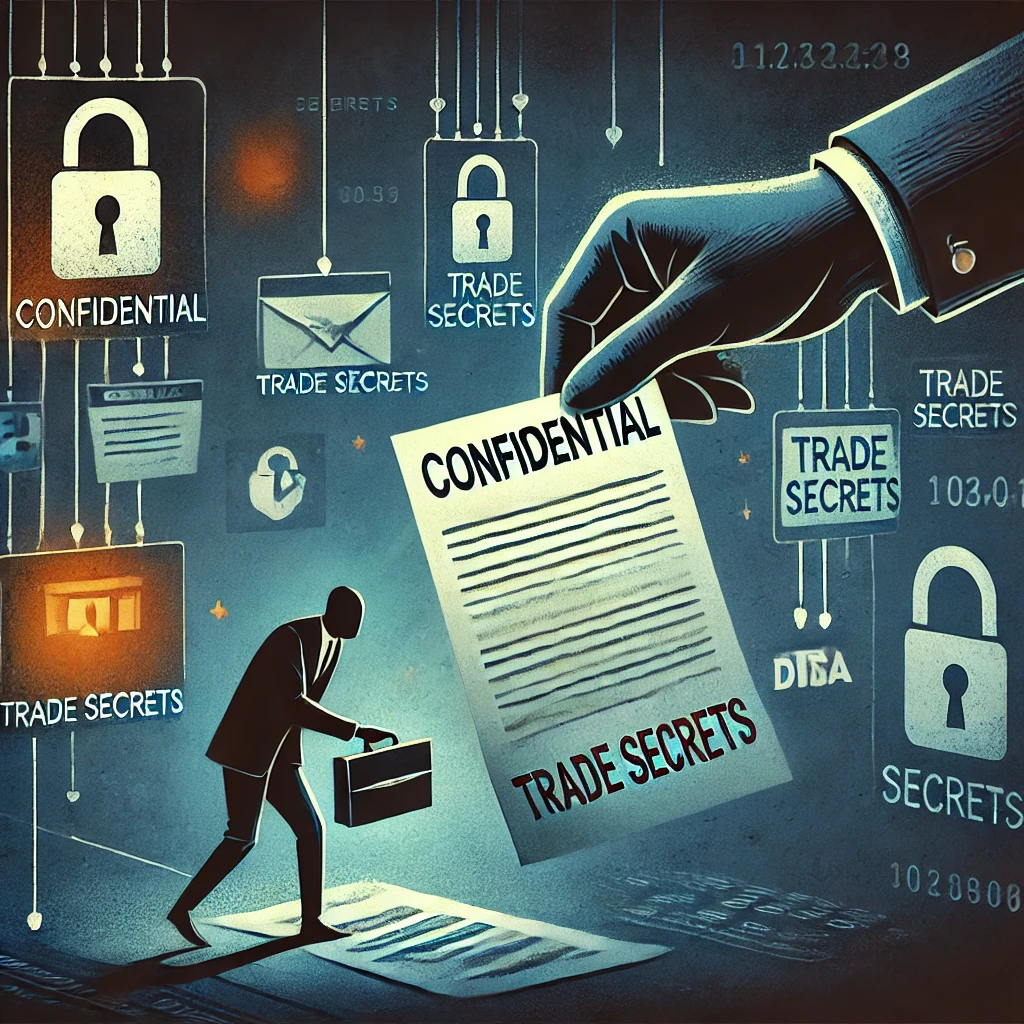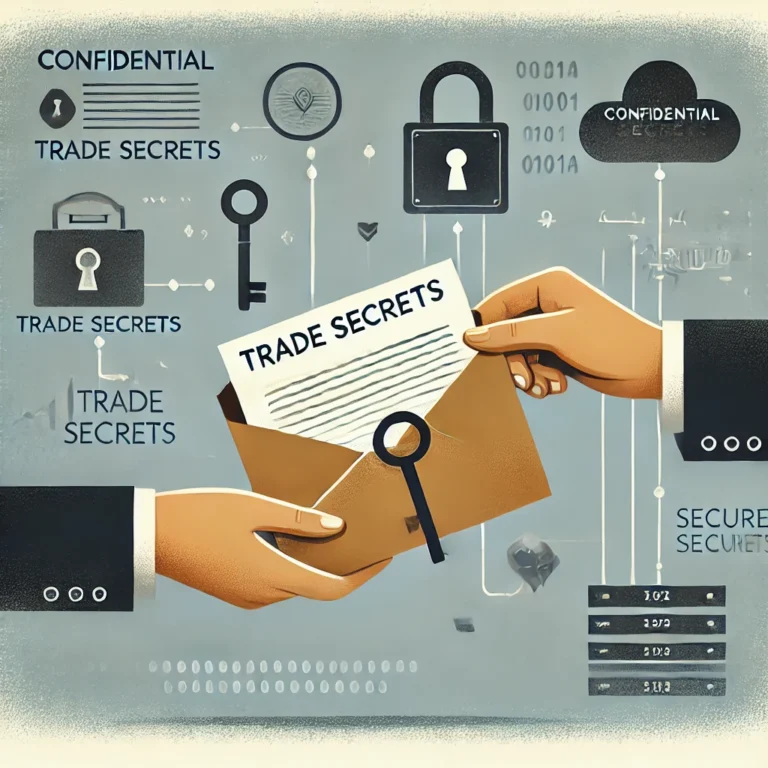Call us now:
How is the disclosure of trade secrets handled under Vietnamese law? The unauthorized disclosure of trade secrets is a serious violation under Vietnamese law, which provides strict protections to safeguard confidential business information. In Vietnam, trade secrets are considered a form of intellectual property, and any unauthorized use, theft, or disclosure of such secrets can result in legal consequences.

Examples of Trade Secret Infringement
Trade secret infringement can occur in various forms and lead to serious consequences for businesses. Below are specific examples of trade secret violations:
- A former employee of a tech company leaves and takes important technical information about a new product. The employee then uses this information to start their own company and develop a similar product. This disclosure and use of the information violates the confidentiality agreements signed while working at the former company.
- A marketing employee switches to a competitor and brings with them the former company’s confidential marketing strategies, including upcoming advertising campaigns, market research data, and target customer lists. The competitor then uses this information to develop similar campaigns, causing significant damage to the original company.
- A food manufacturing company’s secret recipe for a famous product, such as a special sauce, is copied by a competitor. The competitor uses the stolen recipe to produce a similar product and sell it on the market, causing substantial losses to the original recipe owner.
- A group of hackers breaches a financial company’s computer system and steals a customer database, including personal information, shopping habits, and transaction histories. The stolen data is sold on the black market or used for fraud, resulting in severe financial and reputational damage to the victimized company.
- Company A participates in a bid for a large project, and their trade secrets, including bidding strategies and pricing details, are stolen by Company B. Company B uses this information to offer a more competitive price, winning the contract and harming Company A.
- A researcher at a pharmaceutical company secretly copies important data about a drug under development from the internal system and shares it with a competing company. The competitor then uses the data to develop a similar product, undermining the original company’s exclusive advantage.
- A subcontractor hired to produce a special component for a high-tech product shares technical information about the component with a third party without permission from the company that owns the trade secret. The third party uses the information to develop a competing product, reducing the original product’s market value.
- A hacker gains unauthorized access to a company’s computer system and copies sensitive information, such as new product plans, financial data, or business strategies. This information is then publicly disclosed or sold to competitors, causing serious damage to the company.
- A business partner signs a non-disclosure agreement (NDA) with a company to access trade secrets during a collaboration. However, after the partnership ends, the partner discloses the secret information to a third party or uses it for their own benefit, violating the NDA.
These examples illustrate the different forms of trade secret infringement and the severe consequences businesses may face if they do not carefully protect their information. Companies should implement strict security measures, sign appropriate legal agreements, and maintain continuous monitoring to minimize the risk of trade secret violations.
How is the disclosure of trade secrets handled under Vietnamese law?
The unauthorized disclosure of trade secrets can be strictly penalized under the law.
1/ Civil Measures for Handling the Disclosure of Trade Secrets
The violator may be required to compensate for damages caused to the trade secret owner. These damages may include financial losses, lost profits, or harm to the company’s reputation and dignity.
The trade secret owner can request the court to issue an injunction to prevent the violator from further using or disclosing the confidential information. This may involve a prohibition on using the trade secret or an order to destroy documents containing the secret information. If the violator has profited from the unauthorized use of the trade secret, the owner may demand the return of these illicit gains.
Additionally, the trade secret owner may also request the violator to pay a penalty as stipulated in the confidentiality agreement.
2/ Administrative Measures for Handling the Disclosure of Trade Secrets
According to Article 16 of Government Decree No. 75/2019/ND-CP on administrative sanctions in the field of competition, the act of infringing on confidential business information, including unauthorized access, disclosure, or use of such information, will be strictly handled with administrative measures.
Specifically, the violator may be fined between VND 200,000,000 and VND 300,000,000. Furthermore, the materials, means of violation, and profits gained from the infringing act will also be confiscated. This measure emphasizes the importance of protecting trade secrets in a competitive environment and encourages compliance with the law.
Contact Us Now:
DCNH LAW
Address: 38B Tran Nhat Duat, Phuoc Hoa ward, Nha Trang city, Khanh Hoa province, Vietnam.
Phone: (+84) 343320223 – 974278893
Email: dcnh.law@gmail.com




